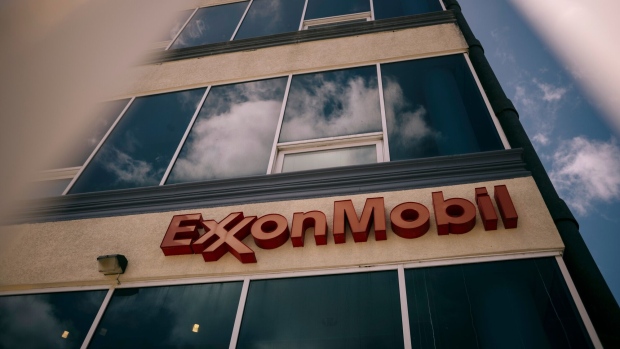May 29, 2024
Exxon Shareholders Vote With Board on All Proxy Proposals
, Bloomberg News

(Bloomberg) -- Exxon Mobil Corp. pledged to be a “forceful advocate” for shareholder rights as it confronts activist investors that the oil giant accuses of abusing the US proxy voting system.
Chief Executive Officer Darren Woods vowed to “safeguard” annual meetings from activists that launch “serial attacks” on Exxon and the oil industry. Exxon is pursuing legal action against Arjuna Capital even though the investor dropped a proposal that would have urged the driller to curb greenhouse gas emissions.
“When we see a process that’s designed to give investors access to directors, management and fellow investors who share their views being abused by a coalition of activists masquerading as shareholders, we’re obliged to speak up and take action,” Woods said during Exxon’s annual shareholder gathering on Wednesday. “For shareholder democracy to thrive, abuses of the process must be addressed. You can count on us to do our part.”
Investors voted in line with all board recommendations at the virtual meeting. An average of 95% backed the re-election of 12 Exxon directors while proposals for reports on gender and race, plastics and social impact were rejected.
Read More: Exxon Feels the Heat as More Investors Assail Climate Conduct
Exxon became one of the highest-profile targets of the so-called ESG movement three years ago when it lost a climate-focused proxy battle to Engine No. 1 and was forced to replace a quarter of its board. The company says its lawsuit against Arjuna seeks clarity on ballot measures put to shareholders, and to block those proposals that have been repeatedly rejected.
The suit “threatens to silence” investors and goes far beyond climate change, the head of the California Public Employees’ Retirement System, said during a Bloomberg Television interview.
“Exxon Mobil’s lawsuit threatens to silence shareholders everywhere by stripping away both their rights and their role in improving a company’s bottom line,” Calpers CEO Marcie Frost said.
Some recent climate proposals have pushed Exxon to set so-called Scope 3 emissions-reduction targets that would align with the 2015 Paris Agreement. Woods opposed such measures because they involve products such as gasoline, the use of which is ultimately under the control of individual consumers.
“The only way for us to reduce Scope 3 emissions is to stop selling the products that we supply today and our consumers use to power their homes and to power their cars,” he said. “Frankly, all that will do is transfer our supply” to other companies.
Exxon sees oil demand averaging 100 million barrels a day in 2050, roughly the same as current levels, as consumption rises in the developing world.
“There’s a view that we’re in a declining industry,” Woods said. “That view is wrong. Oil and natural gas will play a much greater role than the market thinks.”
--With assistance from Matthew Miller.
©2024 Bloomberg L.P.





